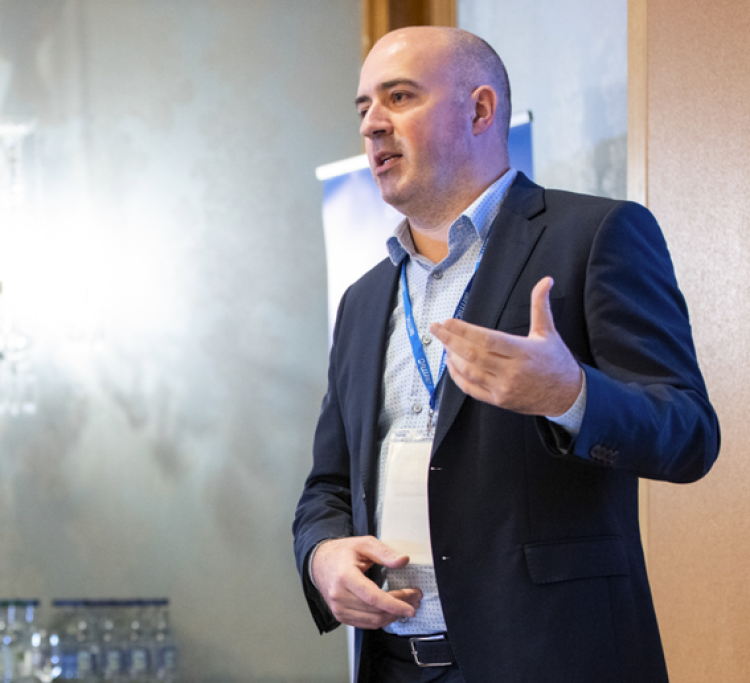Island of Ireland Forum: Personal injury in Ireland – a rapidly changing landscape

Following 20 years of stagnation, the personal injuries landscape in Ireland has over the last two years changed, and potentially changed utterly.
The Airmic Island of Ireland Forum returned for its second year, taking place to a packed audience in Dublin on 26 October.
The Airmic Island of Ireland Forum returned for its second year, taking place to a packed audience in Dublin on 26 October.
One of the speakers this year was Martin Browne, a partner and head of Ireland at legal firm HF Ireland.
Browne addressed the impact of the Ireland’s Personal Injuries Guidelines, the changes to the Personal Injuries Assessment Board’s (PIAB) roles and functions, as well as recent amendments to the Occupiers Liability Act.
Airmic News caught up with him afterwards to provide members who could not be there with a flavour of his presentation and Ireland’s risk landscape for personal injury law.
What do you think is the significance of the Island of Ireland Forum?
The Island of Ireland Forum was an incredibly professional production. The calibre of speakers was extremely impressive, as was the breadth of topics covered. It is a very welcome and necessary addition to the Irish Insurance market and I look forward to attending at it for years to come. Congratulations to all involved in organising it.
How do you expect the Personal Injuries Guidelines to transform Ireland’s personal injury risk/insurance landscape – and is it already happening?
The guidelines, the impact of which are already being felt in relation to a certain cohort of claims, are just one of a myriad of developments and changes over the last few years which should make Ireland a much more attractive place for insurers to do business as they introduce an element of certainty to awards which was missing previously.
The significant reduction in the level of awards for very minor injuries will also likely see a reduction in the overall volume of claims being made, and indeed we are seeing that in the information coming out of PIAB. There is also likely to be a reduction in the level of litigation as more and more claimants are satisfied to accept PIAB Assessments without the need to issue proceedings.
What is the function of the PIAB and is it carrying out its job effectively?
The traditional role of PIAB has been to process personal injuries claims and to make assessments as to the appropriate level of general damages that applies in any given case (without reference to liability issues). It has done that job well for over 20 years.
The imminent introduction of a mediation function, however, does represent a potentially significant broadening of PIAB’s remit and it will be very interesting to see how it plays out. In particular it will be interesting to see the relative interest of claimants versus respondents in taking up the offer of a mediation function.
If it operates as intended I expect that it may be an attractive option for insurers in particular, to the extent that it will be viewed as a further opportunity to mitigate costs exposure. Time will tell.
Please give a brief summary of recent amendments to the Occupiers Liability Act.
The recent amendments to the OLA reflect a series of decisions from the Court of Appeal and the High Court over the last few years which have placed an increased emphasis on the duties of entrants to premises to look after their own safety, and which at the same time have sought to reduce or mitigate what was a heavy burden on occupiers to guard against any and all accidents.
They reflect the fact – as expressed in many of those decisions – that an occupier is not the insurer of the welfare of a visitor. Amongst the new provisions is a very important piece in relation to the voluntary assumption of risk. Waivers in this country have barely been worth the paper they’re written on, and so it is hoped that with this new legislative footing in place, businesses in the impacted areas will be better able to defend claims against them.
